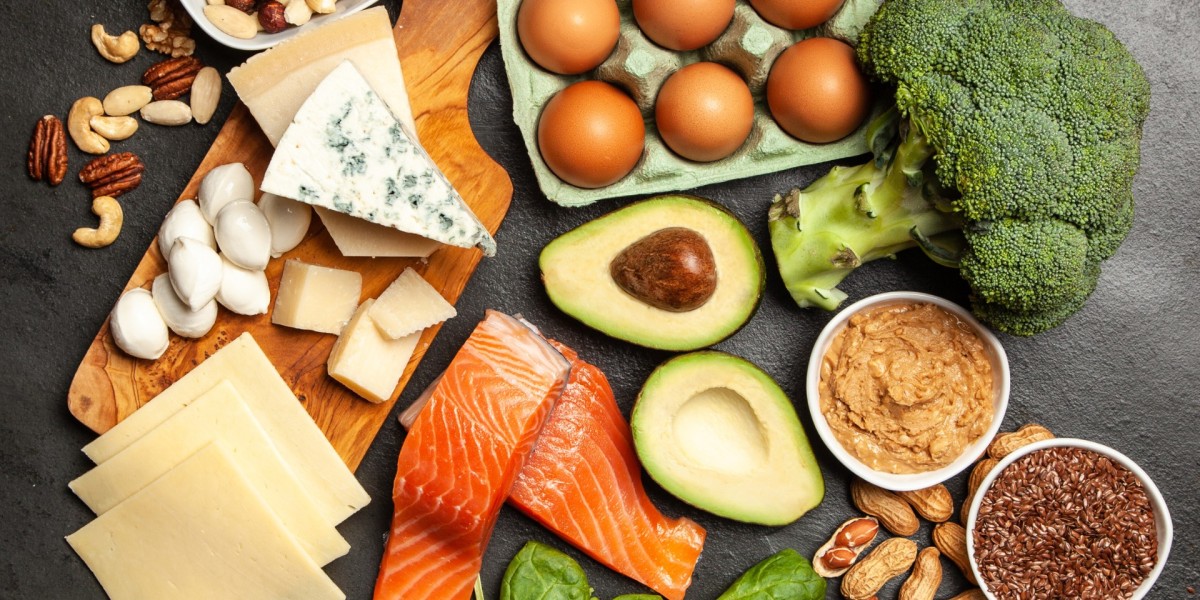When following a ketogenic (keto) diet, it's essential to pay close attention to macronutrient intake, particularly carbohydrates and proteins. While the keto diet is primarily known for its low-carb, high-fat approach, adequate protein consumption remains crucial for overall health and muscle maintenance. In this article, we'll delve into the realm of low carb proteins suitable for a keto diet, exploring their benefits, sources, and tips for incorporating them into your meals effectively.
Understanding the Keto Diet
The keto diet is a high-fat, low-carb dietary regimen designed to shift the body's metabolism into a state of ketosis. In ketosis, the body relies on fat for fuel instead of carbohydrates, leading to increased fat burning and weight loss. To achieve and maintain ketosis, individuals typically restrict their carbohydrate intake to around 20-50 grams per day, while increasing their consumption of healthy fats and moderate protein.
Get This: Keto and Brain fog
Importance of Protein in a Keto Diet
Protein plays a crucial role in a keto diet by supporting muscle growth, repair, and overall body function. However, it's essential to choose protein sources that are low in carbohydrates to prevent exceeding daily carb limits and disrupting ketosis. Low carb proteins provide the necessary amino acids without significantly impacting blood sugar levels, making them ideal for maintaining ketosis while meeting protein needs.
What Makes a Protein Low Carb?
Low carb proteins are those that contain minimal carbohydrates per serving. Generally, animal-based proteins such as meat, poultry, fish, and eggs are naturally low in carbs, making them staples in a keto diet. Plant-based protein sources like tofu, tempeh, and certain nuts and seeds can also be low in carbs, though they may require more careful consideration and portion control to fit within keto macros.
Top Low Carb Protein Sources for a Keto Diet
Meat and Poultry
- Beef
- Pork
- Chicken
- Turkey
- Lamb
Fish and Seafood
- Salmon
- Trout
- Tuna
- Shrimp
- Crab
Eggs
- Whole eggs
- Egg whites
Dairy Products
- Cheese (e.g., cheddar, mozzarella, feta)
- Greek yogurt
- Cottage cheese
Plant-Based Options
- Tofu
- Tempeh
- Edamame
- Seitan
- Nuts and seeds (e.g., almonds, chia seeds, hemp seeds)
Benefits of Incorporating Low Carb Proteins into a Keto Diet
Incorporating low carb proteins into a keto diet offers several benefits, including:
- Supporting muscle maintenance and growth
- Providing essential amino acids for overall health
- Helping to keep you feeling full and satisfied
- Contributing to stable blood sugar levels
- Promoting fat loss and weight management
Challenges of Finding Low Carb Proteins
While many protein sources are naturally low in carbs, some may contain hidden sugars or additives that can increase carb content. Additionally, certain plant-based proteins may be higher in carbs and require careful portion control to avoid exceeding daily limits. It's essential to read labels carefully and choose minimally processed, whole food sources of protein whenever possible.
Tips for Choosing the Right Low Carb Proteins
When selecting low carb proteins for a keto diet, consider the following tips:
- Opt for lean cuts of meat and poultry to minimize fat intake.
- Choose fatty fish like salmon and trout for their omega-3 fatty acids and added fat content.
- Include a variety of protein sources to ensure you're getting a diverse range of nutrients.
- Watch out for hidden sugars and additives in processed protein products.
- Experiment with plant-based proteins like tofu and tempeh for variety and additional nutrients.
Meal Ideas Incorporating Low Carb Proteins
Incorporating low carb proteins into your meals can be delicious and satisfying. Here are some meal ideas to inspire your keto journey:
- Grilled chicken Caesar salad with Parmesan cheese and avocado
- Baked salmon with roasted asparagus and garlic butter
- Spinach and feta omelet with a side of bacon
- Greek yogurt parfait with berries and almonds
- Tofu stir-fry with mixed vegetables in a sesame ginger sauce
Get This What Are The Golden Rules of Keto
Recipes for Low Carb Protein Meals
Grilled Chicken Caesar Salad
- Grilled chicken breast
- Romaine lettuce
- Parmesan cheese
- Caesar dressing (low carb)
- Crispy bacon bits
Baked Salmon with Asparagus
- Fresh salmon fillets
- Asparagus spears
- Olive oil
- Garlic
- Lemon
- Salt and pepper
Spinach and Feta Omelet
- Eggs
- Spinach
- Feta cheese
- Butter or olive oil
- Salt and pepper
Addressing Common Concerns About Low Carb Proteins
Will eating too much protein kick me out of ketosis?
- Consuming moderate amounts of protein is unlikely to kick you out of ketosis. However, excessive protein intake can potentially convert into glucose through a process called gluconeogenesis, which may impact ketone production.
Can I get enough protein on a keto diet without meat?
- Yes, it's possible to meet your protein needs on a keto diet without consuming meat. Plant-based sources like tofu, tempeh, and certain nuts and seeds can provide adequate protein while keeping carb intake low.
Are protein supplements necessary on a keto diet?
- While protein supplements can be convenient, they're not essential for meeting protein needs on a keto diet. Whole food sources of protein are generally preferable as they offer a broader range of nutrients.
Can I overeat on low carb protein foods?
- While low carb protein foods are generally satiating, it's still possible to overeat and exceed your calorie goals. Portion control and mindful eating are essential for maintaining balance and achieving your desired outcomes on a keto diet.
Are there any risks associated with a high protein intake?
- In some cases, consuming very high amounts of protein over an extended period may pose risks to kidney health, particularly in individuals with pre-existing kidney conditions. It's essential to consume protein in moderation and consult with a healthcare professional if you have concerns.
Conclusion
Incorporating low carb proteins into a keto diet is essential for supporting muscle maintenance, overall health, and achieving ketosis. By choosing from a variety of animal and plant-based protein sources and following practical tips for meal planning and preparation, you can enjoy delicious and satisfying meals while staying on track with your keto goals.
FAQs
Can I eat beans on a keto diet?
- While beans are a good source of protein, they're also relatively high in carbohydrates and may not be suitable for strict keto diets. However, small portions of certain beans, like black soybeans, may fit into a keto meal plan.
Is it necessary to count macros on a keto diet?
- Counting macros (macronutrients) can be helpful for ensuring you're staying within your desired carb, protein, and fat intake goals on a keto diet. However, some individuals may find success with a more intuitive approach to eating.
Can I have fruit on a keto diet?
- Most fruits are relatively high in carbohydrates and may need to be limited on a keto diet. However, small portions of low-carb fruits like berries can be enjoyed occasionally as part of a well-rounded keto meal plan.
What beverages can I drink on a keto diet?
- Water, herbal tea, black coffee, and unsweetened nut milk are all suitable beverage options for a keto diet. Avoid sugary drinks, fruit juices, and high-carb alcoholic beverages.
How can I prevent keto flu when starting a keto diet?
- To prevent or alleviate symptoms of keto flu (such as fatigue, headache, and nausea), be sure to stay hydrated, replenish electrolytes, get plenty of rest, and gradually reduce carbohydrate intake rather than cutting them out abruptly.






